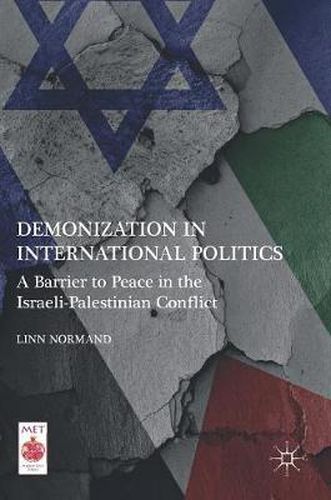Readings Newsletter
Become a Readings Member to make your shopping experience even easier.
Sign in or sign up for free!
You’re not far away from qualifying for FREE standard shipping within Australia
You’ve qualified for FREE standard shipping within Australia
The cart is loading…






This title is printed to order. This book may have been self-published. If so, we cannot guarantee the quality of the content. In the main most books will have gone through the editing process however some may not. We therefore suggest that you be aware of this before ordering this book. If in doubt check either the author or publisher’s details as we are unable to accept any returns unless they are faulty. Please contact us if you have any questions.
This book investigates demonization in international politics, particularly in the Middle East. It argues that while demonization’s origins are religious, its continued presence is fundamentally political. Drawing upon examples from historical and modern conflicts, this work addresses two key questions: Why do leaders demonize enemies when waging war? And what are the lasting impacts on peacemaking? In providing answers to these inquiries, the author applies historical insight to twenty-first century conflict. Specific attention is given to Israel and Palestine as the author argues that war-time demonization in policy, media, and art is a psychological and relational barrier during peace talks.
$9.00 standard shipping within Australia
FREE standard shipping within Australia for orders over $100.00
Express & International shipping calculated at checkout
This title is printed to order. This book may have been self-published. If so, we cannot guarantee the quality of the content. In the main most books will have gone through the editing process however some may not. We therefore suggest that you be aware of this before ordering this book. If in doubt check either the author or publisher’s details as we are unable to accept any returns unless they are faulty. Please contact us if you have any questions.
This book investigates demonization in international politics, particularly in the Middle East. It argues that while demonization’s origins are religious, its continued presence is fundamentally political. Drawing upon examples from historical and modern conflicts, this work addresses two key questions: Why do leaders demonize enemies when waging war? And what are the lasting impacts on peacemaking? In providing answers to these inquiries, the author applies historical insight to twenty-first century conflict. Specific attention is given to Israel and Palestine as the author argues that war-time demonization in policy, media, and art is a psychological and relational barrier during peace talks.